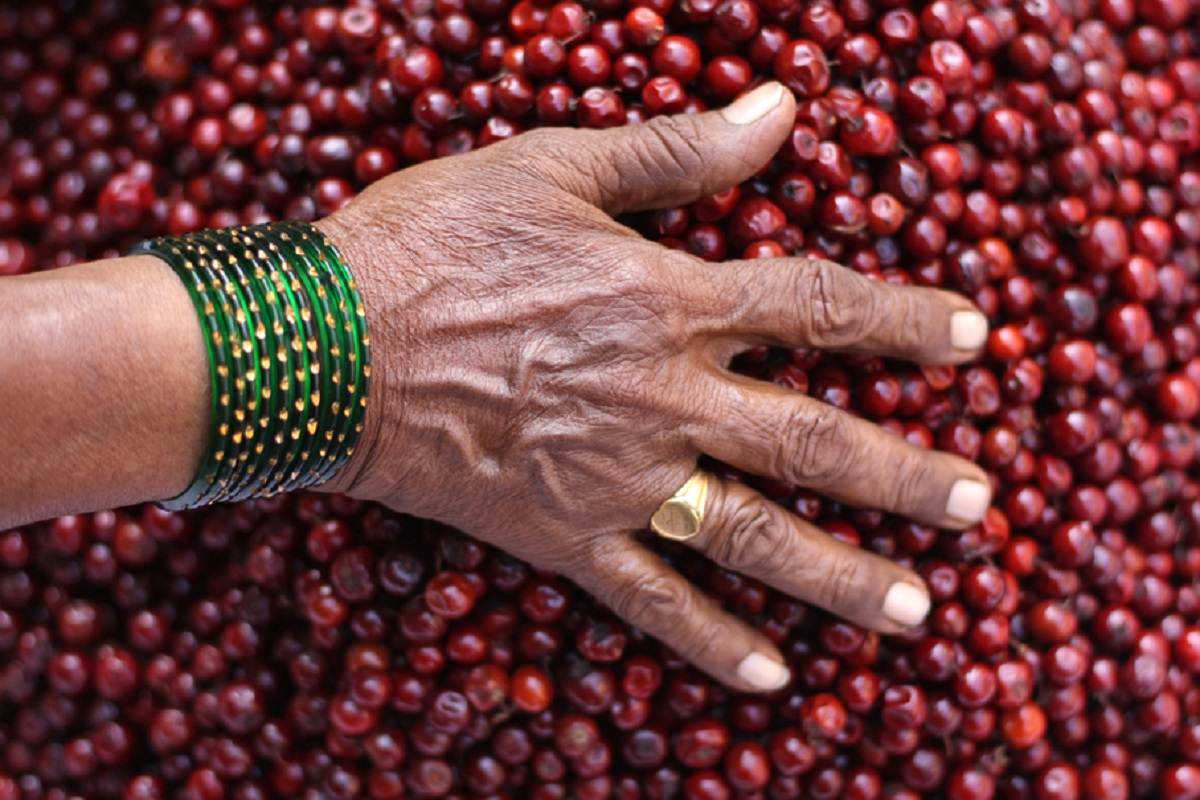
The work of social scientists involves taking an in-depth look at the many, often interlinking aspects of how society works. In order to understand certain facets of social relationships in more detail, it is sometimes necessary to apply a specific ‘lens’ to highlight these, especially where they tend to be neglected. A ‘gendered lens’ allows us to examine gender bias, gendered power relations and resulting inequalities in economic and social relations and institutions.
Development Economist, Dr Fiorella Picchioni, Fellow in Gender and Diversity in Food Systems at NRI, is working on a project entitled ‘Depleted by debt? Focusing a Gendered Lens on Climate Resilience, Credit and Malnutrition in Translocal Cambodia and South India’. ‘Translocal’ in this context refers to the interconnected, interpersonal relations and processes that happen through migration flows and networks, beyond geographical boundaries. The initiative uses a feminist political economy lens to guide critical inquiry on financial inclusion, in a context where the market-driven global system has demonstrated disastrous impacts on the environment and in the management of the COVID-19 pandemic.
The goal of this project is to make a joint reading of the two overlapping global crises which dominated discussions and collective lived realities from early 2020 onwards: the climate crisis and the COVID-19 pandemic, considering their close interlinkages and shared causes in capitalism, colonialism, global racism, and ongoing deprivations.
As with many projects that involved primary data collection in early 2020, this one was also delayed by the COVID-19 pandemic: travelling was impossible and concerns about infection and survival raised by communities took priority over the project’s timeline. However, almost two years into the pandemic, the project has made great progress: Dr Picchioni developed an online training module and provided desk support for the nutrition and physical activity arm of the project in Cambodia. The data from this module is combined with environmental profiling, household surveys, nutrition and physical activity assessments, photovoice and qualitative interviews, where possible, in Cambodia and Tamil Nadu, India.
The analysis is still ongoing, and it is too early to talk about results and outcomes at this stage. Nevertheless, the interviews evoke a picture of vulnerabilities within and outside the households. Families were living on the “edge”, with limited resources and missing the public sector to help them cope with external shocks. This is compounded by: 1) environmental crisis and natural resources mismanagement that has made agriculture an unreliable source of income; 2) debt-related stress and anxiety due to the fears of losing land and other collateral.
Funded by the Global Challenges Research Fund (GCRF), the project brings together a team of 20 interdisciplinary scholars and practitioners from Cambodia, India, the UK, and continental Europe.

